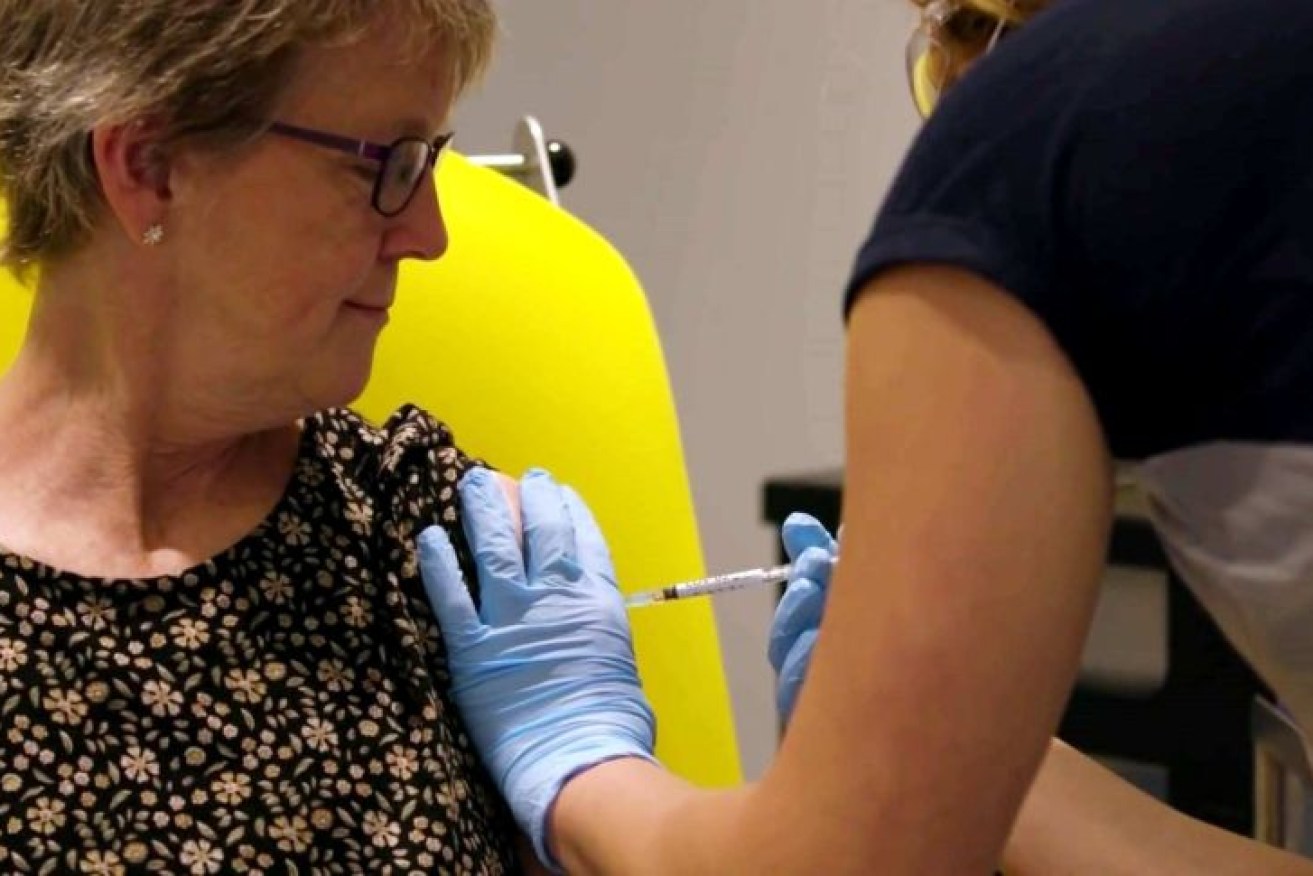Survey: Most Australians would get COVID vaccine

Pfizer and Moderna have had 95 per cent success rates with their vaccines. Photo: ABC News Photo: ABC News
Most Australians plan to get vaccinated against the coronavirus once it’s available, but new surveys also show hesitancy in the community.
Australian National University analysis released on Friday shows close to three-in-five people would get the jab, while six per cent definitely won’t and another seven per cent probably won’t.
The survey of 3000 adults in August found females, people living in disadvantaged areas, those with more populist views and stronger religious beliefs were more likely to be hesitant to get vaccinated.
A separate survey of 1000 Australians found the same amount – six per cent – wouldn’t get the vaccine.
The Dynata data also shows one in three would get the vaccine immediately after it’s available while the same number would wait to speak to their doctor and only take it if recommended.
The Australian government has four vaccine deals on the table as well as access to 25 potential vaccines through an international agreement.
Health Minister Greg Hunt says all up, it would be enough to vaccinate Australia three times over.
“Our expectation remains that the first vaccines will be provided to health workers and subject to approvals, to the elderly in March and then we’ll progressively rollout around the country,” he told Adelaide radio 5AA on Thursday.
The government’s goal is to have all Australians who choose to be vaccinated to have the jab by the end of next year.
It comes as Pfizer-BioNTech and Moderna both reported success rates of about 95 per cent on trials on their vaccines.
AstraZeneca and Oxford University’s potential COVID-19 vaccine has also produced a strong immune response in older adults.
The data, reported in part last month but published in full in The Lancet medical journal on Thursday, suggest that those aged over 70, who are at higher risk of serious illness and death from COVID-19, could build robust immunity.
“We hope that this means our vaccine will help to protect some of the most vulnerable people in society but further research will be needed before we can be sure,” said Maheshi Ramasamy, a consultant and co-lead investigator at the Oxford Vaccine Group.
Late-stage, or Phase III, trials are ongoing to confirm the findings, researchers said, and to test whether the vaccine protects against infection with SARS-CoV-2 in a broad range of people, including people with underlying health conditions.
Results of those trials should definitely be known by Christmas, the Oxford Vaccine Group’s director Andrew Pollard said, adding it was too early to know whether and how well the vaccine worked in preventing COVID-19 disease.
“We’re obviously not going to rush that,” he told BBC radio. “We’re getting close, and it’s definitely going to be before Christmas, based on the progress.”
Unlike the Pfizer-BioNTech and Moderna shots, both of which use new technology known as messenger RNA (mRNA), AstraZeneca’s is a viral vector vaccine made from a weakened version of a common cold virus found in chimpanzees.
-AAP








